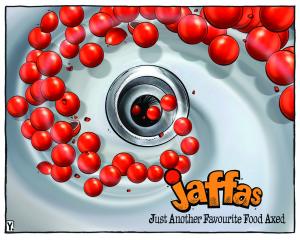Science influences societal understanding and therefore is of fundamental benefit, writes John Evans.
To enhance lifestyle has always been a role of science. But science also affects our considerations of morality and our material and social choices.
The science environment in New Zealand at present urges scientists to be producers of patentable devices and processes.
However, a more imaginative view of science would be valuable because science is inevitably incorporated into our communities.
In this regard, the recent National Statement of Science Investment produced by MBIE is deficient.
That science indeed influences societal understanding (and therefore is of fundamental benefit) is illustrated by two ongoing media topics: The concept of assisted death is simple enough, but science introduces complexities.
There are scientific data that must be reconciled on the relationships of pain relief medication, cognition, physical capabilities and so on.
Lecretia Seales indicated that the drugs she received tired her such that even reading was difficult.
The changing inventory of scientific information is at the basis of the debate about humanness and interventions.
A second discussion has been of a different sort: Pluto and Mars, ice and water, distance and proximity.
We can speculate on what the observations (eg Martian water stains and the rocky Plutonic core) imply for concepts about our own species and our relationships to the universe.
A host of devices and machines are provided by industry and other commercial entities following scientific discoveries.
In these cases the prior, economically non-productive consummation of curiosity occurred largely in universities.
Sandra Grey, president of TEU, observed that universities are places for creating knowledge; they are where unplanned discoveries are made because there the structure eschews the direct economic drive of industry.
This explains why universities-based research has had a traditional role different from R&D in industry.
The characteristics of science, that it is fundamentally a provider of unexpected understanding, are therefore such that discovery science could be sensibly categorised within the humanities.
The MBIE Statement is a long-required guide for science and scientists in New Zealand in universities, CRIs and industry.
The general role of science is, of course, to enrich the well-being of our citizens.
John Holdren (a science adviser to President Obama) observed that ''the national interest [includes] expanding the boundaries of knowledge''.
Nevertheless, in the statement the commercial outcome is preferred to be the measure of societal benefit.
In fact, when the document compares ''basic science'' with ''applied science'' it concocts a commercial description to define basic science, as ''far-from-market discovery research''.
With mainly commercial value in mind, the purpose of activities of MBIE, wherein is sequestered the Minister of Science, is to ''Grow New Zealand for all'' and that in this context ''`Grow' relates to the economy''.
Although, the expectation of scientists to engage with society is a given, doing so is achieved not only via an economics model.
The MBIE statement acknowledges some of those aspects but pronounces that ''All of our science should have a strong line of sight to the eventual benefits'' which is clarified as able to ''grow new, knowledge-intensive [commercial] enterprises''.
The strategy thereby limits itself in its scope by minimising the value to society of knowledge itself.
A corollary is that an education system set within an overarching economic model does not prepare us well for citizenship.
Science is taught as a career option, not as heritage.
Consistent with this view, in October 2014 the Government moved tertiary education from its Cabinet Social Policy Committee to the Cabinet Economic Growth and Infrastructure Committee.
Humanities and science are combined in our living, and should not be artificial strands of educational convenience.
In New Zealand the divide between humanities and science may be equally well characterised as being between citizenship and economics.
In the eyes of the educationist, Carol Geary Schneider, ignorance of ourselves is ''ultimately dangerous both to democracy and to economic creativity''.
Thus governments must facilitate and fund scientific curiosity or otherwise citizens' rights to knowledge are repressed and thereby their rights of societal participation are obstructed.
Less than a year ago Simon Upton, reminiscing on his time as Minister of Research, Science and Technology, suggested that: ''A scientifically and intellectually vibrant community is one insurance policy against [New Zealanders'] almost existential fight with distance, smallness and isolation.''
The central role of science is to generate intelligent understanding of our physical and ethical interactions.
Citizens need scientists who are licensed to reveal the unimagined to us.
• John Evans is Research Professor in the Department of Obstetrics and Gynaecology, University of Otago, Christchurch.











